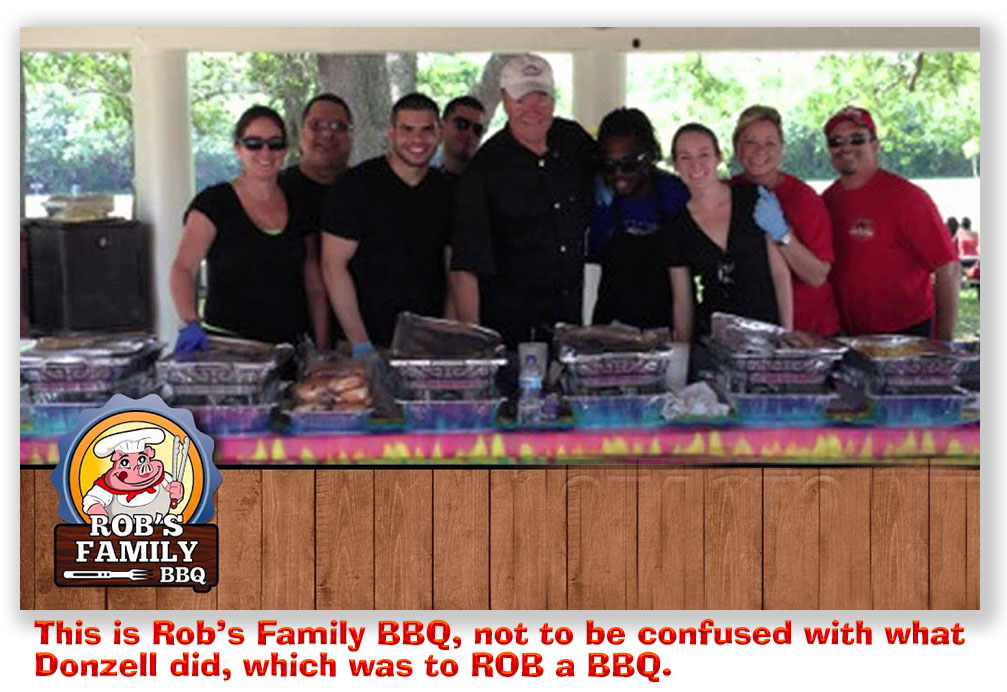We post news and comment on federal criminal justice issues, focused primarily on trial and post-conviction matters, legislative initiatives, and sentencing issues.

PAIR OF 2255 WAIVER RULINGS VALUE SUBSTANCE MORE THAN PROCEDURE
Two appellate decisions last week – from the 4th and 10th Circuits – reminded even the most jaded critics of criminal justice that sometimes fairness can triumph.
 In the 4th Circuit, Donzell McKinney and friends robbed a barbeque joint with a gun back in 2011. He pled guilty to Hobbs Act conspiracy and using a gun in a crime of violence under 18 USC 924(c). In the plea agreement, the government dropped the Hobbs Act robbery count. After the 2015 Johnson v United States ruling, Donzell filed a § 2255 motion arguing that the 924(c) count should be vacated.
In the 4th Circuit, Donzell McKinney and friends robbed a barbeque joint with a gun back in 2011. He pled guilty to Hobbs Act conspiracy and using a gun in a crime of violence under 18 USC 924(c). In the plea agreement, the government dropped the Hobbs Act robbery count. After the 2015 Johnson v United States ruling, Donzell filed a § 2255 motion arguing that the 924(c) count should be vacated.
After over five years of being held in abeyance, Donzell’s district court agreed that he was innocent of the § 924(c) because of the Supreme Court’s 2019 United States v. Davis ruling that conspiracy to commit a violent crime was not itself violent and thus could not support a § 924(c) conviction. But that didn’t help Donzell, the district court ruled, for a bunch of reasons including that his plea agreement waived his right to bring the § 2255, Donzell procedurally defaulted the claim, and anyway, if Donzell had been able to raise the issue back in 2011, the government would not have dismissed the Hobbs Act robbery count but instead would have hitched the § 924(c) charge to that count instead of the conspiracy.
Last week, the 4th Circuit reversed it all, ruling that enforcement of Donzell’s appeal waiver to bar his claim would result in a miscarriage of justice and that he had shown both cause and prejudice for his procedural default.
An appellate court can refuse to enforce an appeal waiver when a sentence is imposed in excess of the statutory maximum or is based on a constitutionally impermissible factor. Among these is the most fundamental reason, where enforcing an appeal waiver would result in a miscarriage of justice. Donzell’s § 924(c) conviction and punishment are for an act that the law does not make criminal. “There can be no room for doubt,” the 4th said, “that such a circumstance inherently results in a complete miscarriage of justice and presents exceptional circumstances that justify collateral relief under 28 USC § 2255.”
 But, the government protested, Donzell really was guilty of the robbery, and would have pled to it if the government hadn’t agreed to drop it. So he wasn’t prejudiced by the Davis error.
But, the government protested, Donzell really was guilty of the robbery, and would have pled to it if the government hadn’t agreed to drop it. So he wasn’t prejudiced by the Davis error.
That’s not how it works, the Circuit replied. “Where the record in a case shows that a count of conviction is now invalid, no precedent authorizes a court to then rely on a dismissed count to negate that demonstrated prejudice. Rather, in determining prejudice for purposes of excusing procedural default, the court asks whether it is likely a defendant, had he known of the error, would not have pled guilty to the count of conviction. The court does not look to whether it is likely a defendant, had he known of the error, would not have pled guilty to a dismissed count.”
 Meanwhile, in the 10th Circuit, Joe Chatwin pled guilty to bank fraud and a § 924(c), an unusual combination to be sure. Joe’s offenses were pretty prosaic, identity theft, turning a $30 cashier’s check into a $30,000 check that he used to buy an RV from a guy, but he apparently pulled a gun when the Marshals came to arrest him. The 18 USC § 111 assaulting a fed charge was dismissed, but it underlay the § 924(c) conviction.
Meanwhile, in the 10th Circuit, Joe Chatwin pled guilty to bank fraud and a § 924(c), an unusual combination to be sure. Joe’s offenses were pretty prosaic, identity theft, turning a $30 cashier’s check into a $30,000 check that he used to buy an RV from a guy, but he apparently pulled a gun when the Marshals came to arrest him. The 18 USC § 111 assaulting a fed charge was dismissed, but it underlay the § 924(c) conviction.
After Johnson, Joe filed a bare-bones § 2255 that said simply, “police chase not a violent crime.” He later amended after Davis to argue that the district court had relied solely on the § 924(c) residual clause (which Davis held was unconstitutionally vague). The government never argued Joe’s merits, instead moving to dismiss the § 2255 motion because Joe had “knowingly and voluntarily waived his § 2255 rights in a Rule 11(c)(1)(C) plea agreement.”
 The district court agreed with the government, holding that enforcing the waiver would not be a miscarriage of justice because Joe’s Davis claim was a dead-bang loser. Joe’s appealed, raising for the first time the argument that his collateral-attack waiver must fail because his conviction-based § 2255 motion fell outside the scope of his plea agreement collateral-attack waiver. He argued that his waiver barred any collateral attacks to his sentence but not to his convictions.
The district court agreed with the government, holding that enforcing the waiver would not be a miscarriage of justice because Joe’s Davis claim was a dead-bang loser. Joe’s appealed, raising for the first time the argument that his collateral-attack waiver must fail because his conviction-based § 2255 motion fell outside the scope of his plea agreement collateral-attack waiver. He argued that his waiver barred any collateral attacks to his sentence but not to his convictions.
The 10th applied “plain error” review to the issue Joe hadn’t argued in the district court, but it agreed Joe was right that the waiver applied only to challenging the sentence, not the conviction. The government argued the error did not affect Joe’s “substantial rights,” that is, it did not change the outcome of the proceeding because Joe would have lost his § 2255 motion anyway.

But because the district court only addressed the motion to dismiss, not the merits of the § 2255 claim, the Circuit held that “the ‘outcome of the proceeding’ here means the outcome of the motion to dismiss—not matters beyond that.” The 10th ruled that Joe “has shown substantial prejudice based on the dismissal of his § 2255 motion. He has shown that the outcome of ‘the proceeding’ would have been different in that the district court could not have dismissed on the issue of the collateral-attack waiver’s scope. Absent plainly erring on the waiver’s scope, the district court could not have dismissed on that ground.”
United States v. McKinney, Case No. 20-6396, 2023 U.S. App. LEXIS 3715 (4th Cir. Feb. 16, 2023)
United States v. Chatwin, Case No. 21-4003, 2023 U.S. App. LEXIS 3889 (10th Cir. Feb. 17, 2023)
– Thomas L. Root

